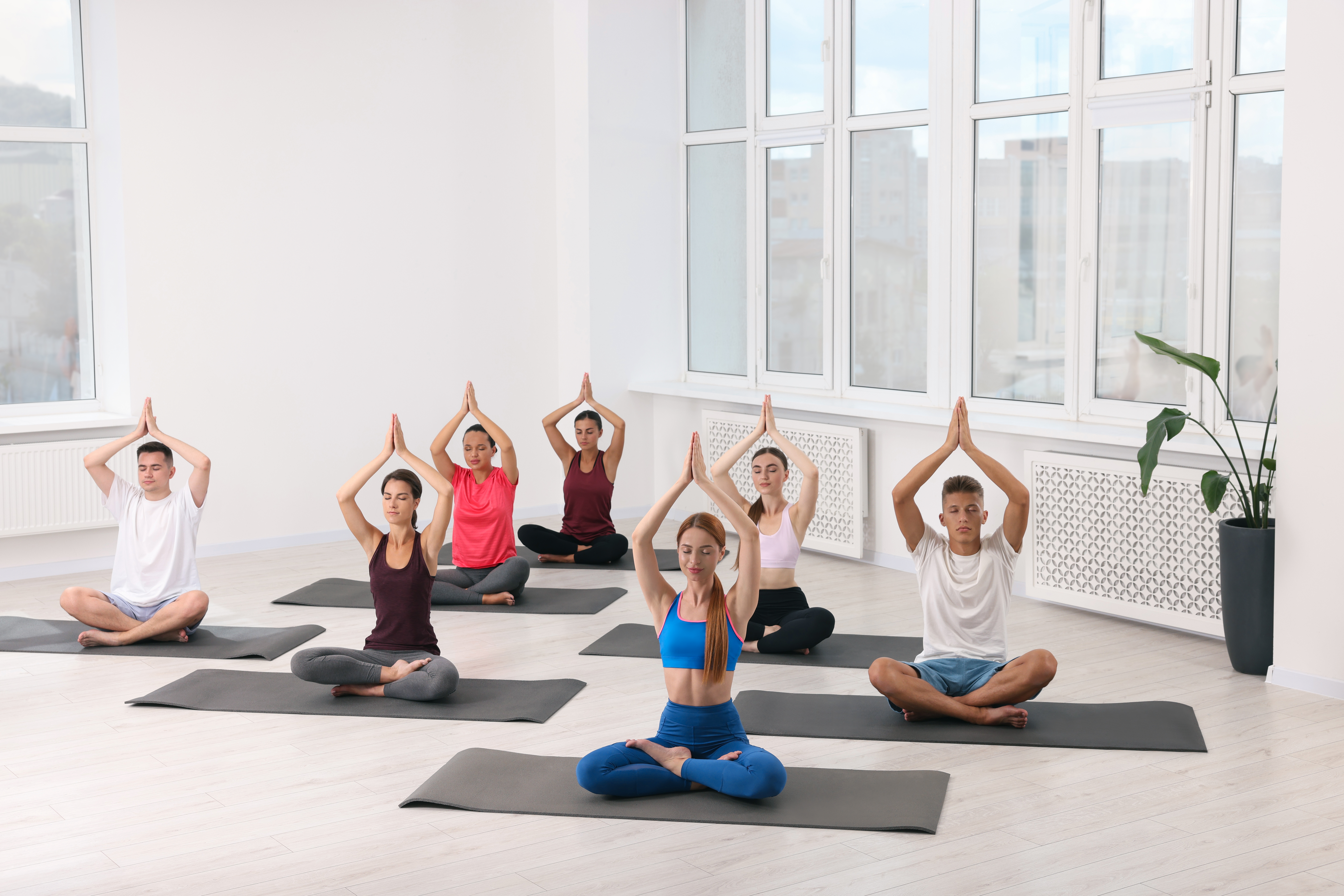A Journey to Wellness
In today’s fast-paced world, people are constantly searching for ways to reduce stress, enhance mental clarity, and improve physical health. One ancient practice that has gained renewed popularity is yoga. Rooted in over 5,000 years of Indian tradition, yoga is more than just physical exercise it’s a complete lifestyle that fosters holistic well-being. From improved posture and flexibility to emotional balance and mental peace, yoga offers a wide range of health benefits that touch nearly every aspect of life. Whether you’re practicing at home or attending classes at yoga studios in Dubai, the transformation begins with consistency and commitment.
The Physical Benefits of Regular Yoga Practice
Improved Flexibility and Range of Motion
One of the most immediate benefits of practicing yoga is enhanced flexibility. In the beginning, you may find it difficult to touch your toes or perform certain poses, but with consistent practice, your muscles start to loosen. This improvement in flexibility reduces the risk of injuries, enhances mobility, and alleviates joint pain.
Over time, you’ll notice increased range of motion in areas that once felt tight or stiff—hips, shoulders, hamstrings, and back. This can be especially beneficial for individuals who spend long hours sitting at a desk or driving.
Enhanced Strength and Muscle Tone
Many people associate strength training with lifting weights, but yoga is incredibly effective at building strength using your own body weight. Poses such as Plank, Downward Dog, and Warrior require you to engage multiple muscle groups simultaneously. This not only tones the body but also increases muscular endurance and stamina.
Better Posture and Spinal Health
Bad posture is a modern epidemic, often caused by long hours of sitting and looking at screens. Yoga emphasizes alignment and awareness of body posture in every pose. Regular practice strengthens your core and back muscles, which are crucial for maintaining proper posture.
With improved posture, you reduce the risk of developing spinal issues, chronic neck pain, and shoulder tension. Yoga makes you more conscious of how you sit, stand, and move throughout the day.
Increased Lung Capacity and Respiratory Health
Yoga is not just about movement—it’s deeply intertwined with breath control, or pranayama. Breathing exercises increase lung capacity, oxygenate the blood, and enhance respiratory function. This can be especially helpful for people with asthma or other respiratory conditions.
By focusing on deep, controlled breathing, yoga improves the efficiency of your lungs, energizing your entire body and promoting a sense of calm.
The Mental and Emotional Benefits of Yoga
Reduced Stress and Anxiety
Modern life is filled with stressors, from work deadlines to social obligations. Yoga offers a sanctuary of calm amid the chaos. The combination of movement, breath, and mindfulness helps to lower cortisol levels—the hormone responsible for stress.
Studies have shown that practicing yoga even a few times a week can significantly reduce symptoms of anxiety and promote a more relaxed mental state. This is especially important for people living in high-energy cities and busy lifestyles.
Improved Mood and Emotional Balance
Yoga stimulates the production of serotonin, the “feel-good” hormone, which can uplift your mood and fight depression. The meditative aspects of yoga—such as deep breathing and focused awareness—help cultivate emotional resilience and inner peace.
Many practitioners report a more positive outlook on life and better emotional regulation as they deepen their yoga journey. This emotional clarity can have a profound impact on your personal and professional relationships.
Enhanced Mental Clarity and Focus
One of the lesser-known but highly impactful benefits of yoga is improved cognitive function. The meditative state achieved during yoga practice helps to declutter the mind, sharpen focus, and boost concentration.
Whether you’re a student preparing for exams or a professional dealing with complex tasks, yoga can help improve your ability to process information and stay mentally sharp.
Yoga and Lifestyle-Related Health Conditions
Weight Management and Metabolism
Yoga may not burn calories as rapidly as high-intensity cardio, but it contributes to weight management in multiple ways. First, it boosts your metabolism by stimulating internal organs and improving digestion. Second, it encourages mindful eating and a more balanced lifestyle.
Practicing yoga regularly leads to better body awareness, helping you make healthier food choices and avoid emotional eating. Over time, this translates to sustainable weight loss and increased self-confidence.
Improved Cardiovascular Health
Yoga supports heart health by reducing blood pressure, lowering cholesterol, and improving circulation. The combination of movement and controlled breathing enhances oxygen delivery to tissues and supports a healthy cardiovascular system.
Certain styles of yoga, such as Vinyasa or Power Yoga, offer a moderate-intensity workout that can improve aerobic capacity and endurance.
Enhanced Immune System Function
Stress is one of the biggest contributors to a weakened immune system. Yoga reduces stress, regulates the adrenal system, and balances hormonal levels, which in turn boosts immunity. Additionally, specific poses help stimulate the lymphatic system, flushing toxins from the body and enhancing natural defenses.
Management of Chronic Pain
For individuals suffering from chronic pain conditions—such as arthritis, fibromyalgia, or back pain—yoga can be a gentle yet powerful tool for relief. By improving joint mobility and releasing muscle tension, yoga reduces discomfort and enhances quality of life.
Mindfulness practices within yoga also alter pain perception, helping individuals cope better with ongoing discomfort.
Yoga for Different Life Stages and Lifestyles
Yoga for Children and Teens
Introducing yoga at a young age can instill habits of mindfulness, focus, and physical awareness. It helps children manage stress from school, develop better posture, and cultivate emotional intelligence.
For teenagers navigating hormonal changes and academic pressure, yoga offers a constructive outlet for energy and emotion.
Yoga for Seniors
Older adults can benefit tremendously from gentle yoga practices focused on balance, flexibility, and joint health. It aids in maintaining independence, preventing falls, and managing age-related conditions like arthritis or osteoporosis.
Many yoga studios in Abu Dhabi offer senior-friendly classes that emphasize safe, adaptive movements and community support.
Yoga for Pregnant Women
Prenatal yoga is specially designed to support the physical and emotional well-being of expecting mothers. It strengthens the pelvic floor, reduces lower back pain, and prepares the body for childbirth. Breathing techniques learned in yoga are also valuable tools during labor.
Postnatal yoga aids in recovery, strengthens core muscles, and helps mothers reconnect with their bodies.
The Spiritual and Social Dimension of Yoga
Mind-Body Connection and Inner Peace
At its core, yoga is a spiritual journey. It connects the practitioner to a deeper sense of self through the union of body, breath, and mind. As your practice matures, you may experience increased self-awareness, contentment, and spiritual fulfillment.
This inner peace often reflects outwardly, influencing your behavior, reactions, and how you engage with the world around you.
Building a Supportive Community
Practicing yoga at a studio offers more than just a place to stretch—it creates a sense of belonging. Group classes foster connections, mutual encouragement, and shared progress. Being surrounded by like-minded individuals on a similar journey can be incredibly motivating.
Whether you’re attending sessions at yoga studios in Dubai or practicing with a small group in your neighborhood, the communal aspect of yoga enhances accountability and enjoyment.
Choosing the Right Style and Environment
Different Types of Yoga
There’s no one-size-fits-all in yoga. Depending on your goals and lifestyle, you can choose from a wide variety of styles:
- Hatha Yoga – Great for beginners, focuses on basic postures and breathing.
- Vinyasa Yoga – A more dynamic style with flowing movements.
- Ashtanga Yoga – Structured and athletic, ideal for building strength.
- Yin Yoga – Slow-paced, deep stretching for joint and connective tissue health.
- Bikram or Hot Yoga – Performed in a heated room to enhance flexibility and detox.
Creating Your Ideal Practice Environment
If you’re new to yoga, starting with an instructor can help you learn proper form and avoid injury. Many yoga studios in Abu Dhabi and yoga studios in Dubai offer beginner-friendly classes, as well as advanced sessions for seasoned practitioners.
At home, you can create a calming space for practice with minimal distractions, a yoga mat, and perhaps some calming music or essential oils.
Final Thoughts: Begin Your Transformation
Yoga is not just an exercise routine—it is a transformative practice that nurtures every part of your being. From reducing stress and building strength to improving flexibility and finding emotional balance, the benefits of regular yoga practice are profound and far-reaching.
You don’t need to be young, flexible, or spiritual to start yoga. All you need is an open mind and a willingness to commit to your well-being. Whether you choose to practice at home or attend classes at yoga studios in Dubai or yoga studios in Abu Dhabi, the most important step is to begin.






Leave A Comment